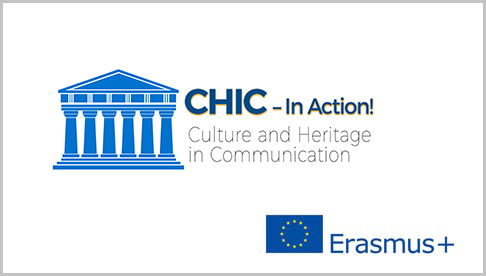
GENERAL INFO
Culture and Heritage in Communication – Using Cultural Heritage in Development of Communicative Competence and Interculturality in Foreign Language Learning
DESCRIPTION
The main aim of the project is to analyse and compare the state of language teaching in the entire education system (from primary to adult education), with special attention given to foreign language teaching in adult education in the six project partners’ countries. The aim is also to define how cultural heritage of these countries can be used as a language teaching tool in project partners’ and other countries.
After valorising cultural heritage of the project partner’s countries, partners will develop innovative approaches in language teaching by providing more attractive education and training programmes, designing a foreign language teaching and cultural heritage discovery curriculum, developing teacher’s materials as well as a digital platform for English and foreign language teaching and cultural heritage discovery.
After valorising cultural heritage of the project partner’s countries, partners will develop innovative approaches in language teaching by providing more attractive education and training programmes, designing a foreign language teaching and cultural heritage discovery curriculum, developing teacher’s materials as well as a digital platform for English and foreign language teaching and cultural heritage discovery.
OBJECTIVES
– improve language teaching competences of adult educators
– strengthen general teaching skills and methodology
– strengthen mediation skills in conflicts caused by cultural differences
– develop an awareness of culture and its impact on behaviour, especially communication
– improve teachers’ skills for working with culturally diverse groups
– gain practical ideas on how to apply different communication strategies in different cross-cultural contexts
– define and identify key elements of interpersonal communication and culture
– compare and contrast cultures’ values, beliefs, perceptions and communication styles
– use the acquired knowledge to further develop cultural sensitivity
– improve students’ communicative skills, fluency and confidence in language use
– develop critical thinking, reflexivity, and self-assessment
– identify different learning styles and strategies of adult learners and apply appropriate methods and techniques for teaching adults
– improve students’ competitiveness in the labour market and other fields.
– strengthen general teaching skills and methodology
– strengthen mediation skills in conflicts caused by cultural differences
– develop an awareness of culture and its impact on behaviour, especially communication
– improve teachers’ skills for working with culturally diverse groups
– gain practical ideas on how to apply different communication strategies in different cross-cultural contexts
– define and identify key elements of interpersonal communication and culture
– compare and contrast cultures’ values, beliefs, perceptions and communication styles
– use the acquired knowledge to further develop cultural sensitivity
– improve students’ communicative skills, fluency and confidence in language use
– develop critical thinking, reflexivity, and self-assessment
– identify different learning styles and strategies of adult learners and apply appropriate methods and techniques for teaching adults
– improve students’ competitiveness in the labour market and other fields.
PARTNERS
- Ustanova za obrazovanje odraslih Dante – HR (LEAD PARTNER)
- European Regional Framework for Cooperation (ERFC) – GR
- International Language School – IT
- VALODU MAPE SIA – LV
- Escola Profissional de Salvaterra de Magos – PT
- ESCUELA OFICIAL DE IDIOMAS RIO VERO – ES
